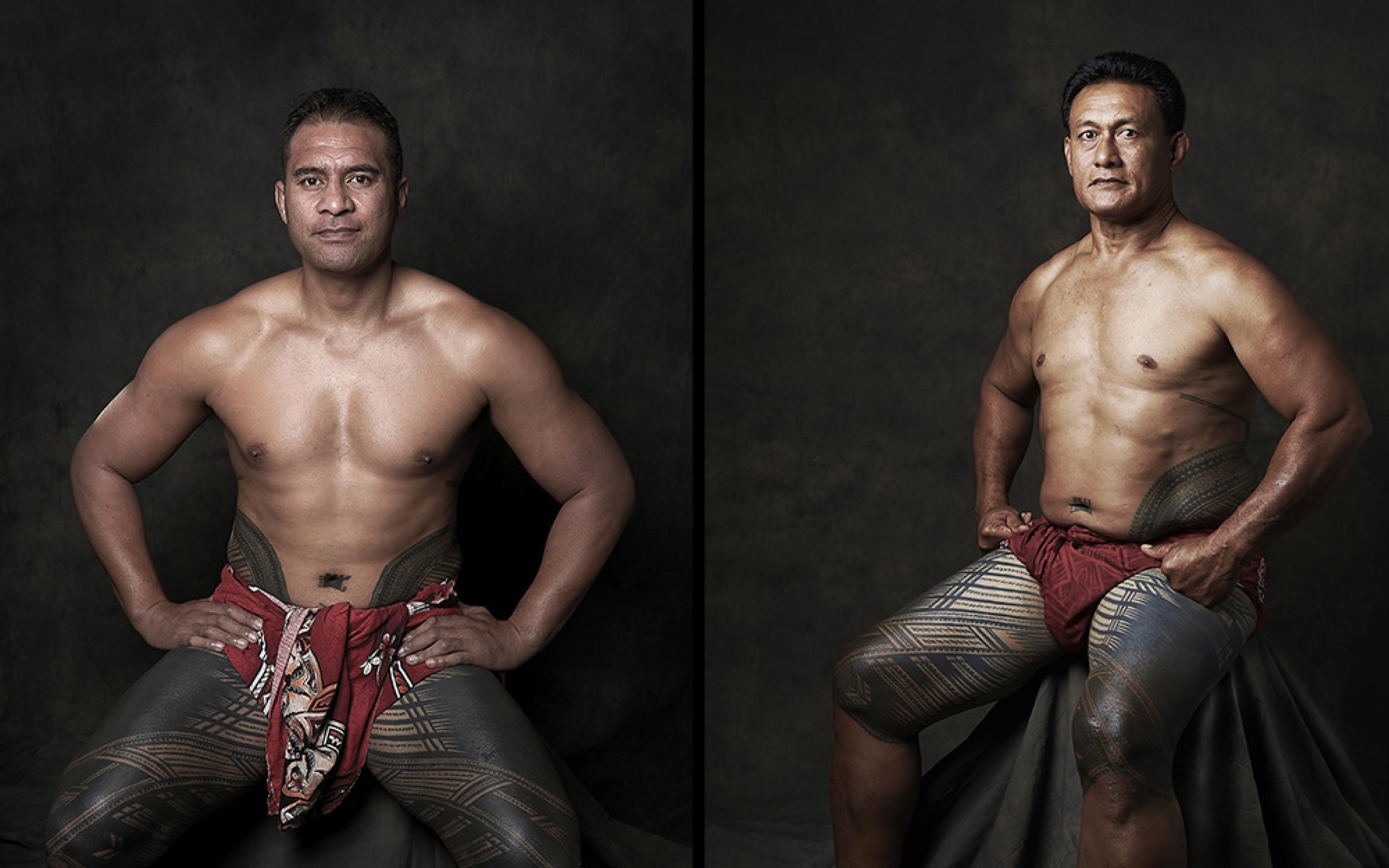
Tatau: Marks of Polynesia depicts the legacy of tatau, the art of Samoan tattooing. Tatau tells a story of history, craftsmanship, tradition, and, most importantly, a people preserving their own story. See all Tatau-related events.
The exhibition explores a beautiful and sacred art that is fundamental in the preservation and spread of Samoan culture, surviving many attempts at eradication.
Comprised of over 150 powerful photographs and narratives, Tatau displays the work of Samoan tattoo masters (tufuga tā tatau), with a special focus on the influential Sulu‘ape family. Other sections highlight a new generation of apprentices and practitioners working within and influenced by tatau traditions. Visitors will learn about the tatau process, sacred handmade tools called ‘au, and associated traditions.
Through the tatau ritual, whether it’s pe’a (traditional male tattoos) or malu (traditional female tattoos), the tattooed person is provided a strengthened sense of identity and a comprehensive understanding of Samoan culture and values. This ritual is critically important, considering the numerous attempts by missionaries and colonists to suppress cultural expressions like tattooing throughout the Pacific. Despite these efforts, the culture of tatau has thrived and influenced tattoo traditions throughout the world. A great pride for many Samoans––tatau has seen a modern revival, helping its Pacific neighbors in Tonga, Tahiti, New Zealand, Ha’waii, and the Cook Islands, by providing a reference for the preservation of their own tattooing traditions.
The traveling version of Tatau: Marks of Polynesia was curated by Takahiro Kitamura and organized by the Japanese American National Museum.
Presenting Sponsor: Al and Sue Landon
Funded in Part By: The Joseph and Evelyn Rosenblatt Enrichment Fund
Community Advisory Group
The successful realization of this remarkable exhibition would not have been possible without the collaborative efforts, expertise, and guidance provided by each member of the Tatau: Marks of Polynesia Advisory Committee. We are grateful for their commitment to the success of this exhibition and for their enduring impact on our museum and the community we serve. Fa'afetai!
Verona Mauga (Le Malu), co-chair
Richard Wolfgramm, co-chair
Dr. Maile Arvin
Fred Frost
Aljay Fuimaono
Dr. Kēhaulani Natsuko Vaughn
Moana Palelei HoChing
